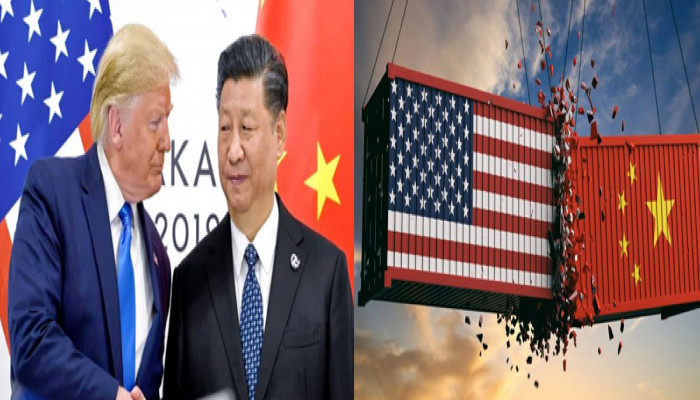China hits back at Trump with 15% tariff on US coal, gas imports
- In Reports
- 06:34 PM, Feb 04, 2025
- Myind Staff
China imposed tariffs on various US products and launched an investigation into Google right after President Donald Trump introduced a 10% tariff on goods from China, restarting a trade conflict between the two largest economies in the world.
China's State Administration for Market Regulation announced it would investigate Google for potential antitrust violations. At the same time, Beijing slapped a 15% tariff on US coal and liquefied natural gas exports and a 10% tariff on US oil and agricultural equipment. Authorities also imposed new export controls on minerals related to tungsten and placed US genome sequencing business Illumina Inc. and Calvin Klein's owner PVH Corp. on a so-called blacklist of entities."The US's unilateral imposition of tariffs seriously violates the rules of the World Trade Organisation," China's Finance Ministry said in a statement announcing tariffs. "It is not only unhelpful in solving its own problems, but also undermines the normal economic and trade cooperation between China and the US."
President Xi Jinping's response seemed carefully planned to prevent significant harm to China's economy, while still showing Trump that China has the power to cause damage in several areas. This includes disrupting the supply chain of critical minerals and impacting US companies with large operations in China. The combination of restraint and the possibility that Xi might take further action to strengthen China's economy resulted in a calm response from the markets. This was especially true since Trump expressed interest in talking to the Chinese leader before the tariffs were imposed. Following the news, the dollar recovered, but the offshore yuan continued to lose 0.3%, while the currencies of Australia and New Zealand—both of which have close trade ties to China—saw a nearly 1% decline. Gains were offset by declines in other Asian currencies, such as the Indonesian rupiah and the Thai baht.
China's reaction was "measured and appropriate," according to Dylan Loh, a politics assistant professor at Singapore's Nanyang Technological University. "It allows Beijing to be seen as doing something, without exactly reacting in a manner that would be seen as inviting further retaliation," he added. "I think Beijing also sees what Canada and Mexico did, and know that they can still come to some sort of understanding." Xi's government quickly retaliated right after the US tariffs took effect, which crushed hopes that China and the US would strike a deal to avoid the tariffs. This came after Trump mentioned he would have a conversation with Xi soon. Earlier, the Republicans had given Canada and Mexico a temporary break from the 25% tariff after talks between their leaders.
Last year, the US supplied about 6% of China's LNG imports, based on ship-tracking data. China imports very little coal from the US. Google’s search and internet services have been unavailable to consumers in China since 2010, although the company still operates in the country, mainly focusing on its advertising business. "This can be interpreted as a warning shot to US enterprises with a high dependency on China's market," said Lynn Song, chief economist for Greater China at ING Bank in Hong Kong.
"There is still hope that tariffs could get quickly unwound or pushed back after face-to-face talks." Song described the actions as a "fairly muted retaliation," pointing out that only a small portion of China's US imports are energy-related. China is the largest producer of tungsten, making up about 80% of the world's total production. Tungsten is known for its high density and melting point, which makes it effective in withstanding extreme temperatures. It is mainly used in armour-piercing missiles in the defence sector.
PVH, the parent company of Tommy Hilfiger, has been under Chinese regulatory scrutiny since September for allegedly refusing to use cotton from the Xinjiang region, although the statement did not directly address this issue. Illumina is a leading company in genetic sequencing and competes with the Chinese biotech giant BGI Genomics Co. Over the weekend, Trump issued an order to impose a blanket tax on Chinese exports, set to take effect after midnight on Tuesday. He justified this decision by accusing China of not doing enough to stop the flow of illegal drugs. The order also includes provisions that would raise tariffs if China retaliates.
If China responds aggressively, it could worsen US-China relations, which had been more stable since Xi and US President Joe Biden met in San Francisco in November 2023. Despite ongoing tensions over territorial disputes and tech access, high-level talks between the two nations have resumed. Trump and Xi spoke about fentanyl, TikTok and trade over the phone before his inauguration. On Monday, Trump stated that the two leaders would have another dialogue, "probably over the next 24 hours," to which Beijing has not officially reacted.







Comments